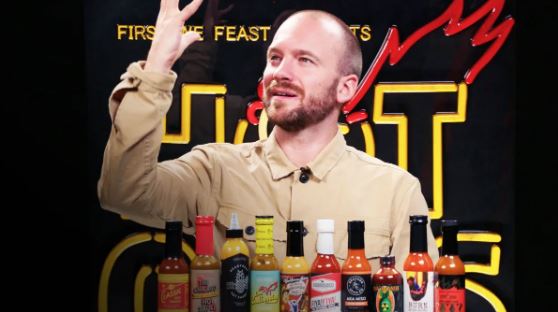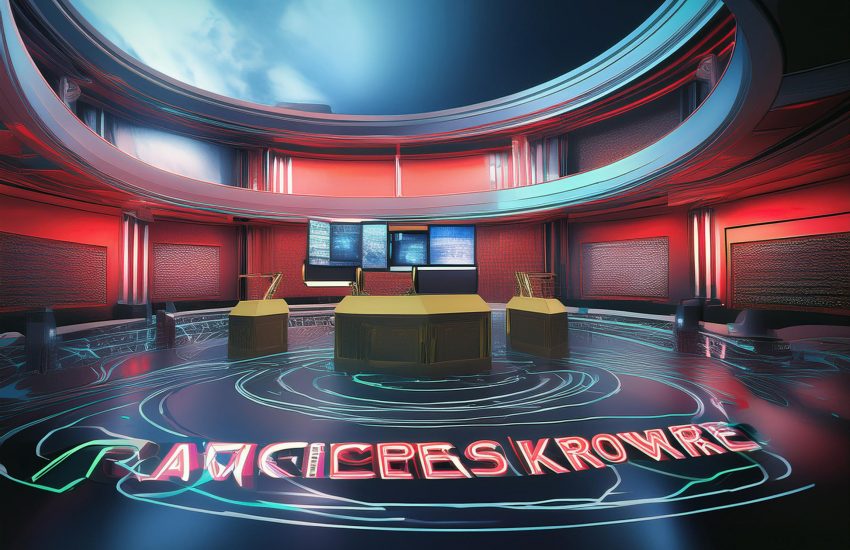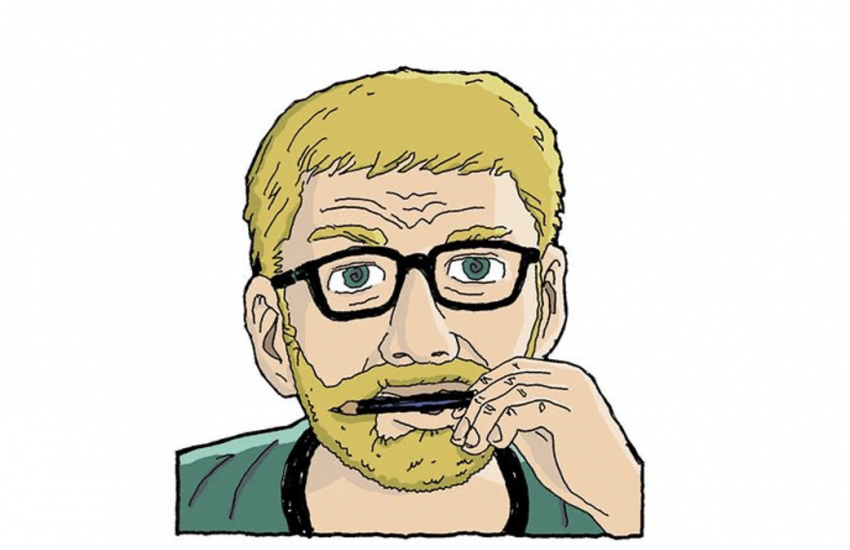How Sean Evans made Hot Ones an Internet Sensation
Hot Ones is a YouTube web series created by Christopher Schonberger and Sean Evans in 2015. The show is produced by First We Feast and Complex Media. It puts the traditional interview show standard on its head as host Sean Evans and celebrity guests go over the celebrity’s career as they both eat increasingly hot chicken wings throughout the interview.
In these 20 to 30 minute interviews, the viewers get to see their favorite celebrities like never before as they grow increasingly uncomfortable and vulnerable with each bite of chicken. In turn, this breaks down the celebrity’s superstar composure in which the public is familiar with. All the while, host Sean Evans is eating these wings with the celebrity to help guide them through this flavorsome crusade. The show has attracted A-lister celebrities onto its channel, including Kevin Hart, Billie Eilish, Shaquille O’Neal, Post Malone, Justin Timberlake, Will Ferrel, and Halle Berry. Hot Ones has truly innovated the traditional celebrity interview.
Storybench spoke with Sean Evans on a Zoom call.
This interview has been edited and condensed.
What was it like bringing the idea to life?
We had the idea and… the way it hit my ear, I knew it could work, it just made me laugh. And if it makes you laugh without having any material then you know maybe you have a good idea.
So early on, we had a good idea, but we were nothing. We were not a brand that anybody knew. And then we have this bizarre pitch that makes people ask, ‘Who are these spicy chicken guys?’ ‘Who in their right mind would agree to do that?’
We would do whatever we could to try to create an episode and put something out there.
The Key and Peele episode was the first breakthrough episode where we were on the front page of Reddit, trending on YouTube, doing millions of views. Since then, it has been reaching the next level sort of growth. Through trying not to drown, we have somehow made this thing last 14 seasons and a couple hundred episodes.
Now that the show has become more popular, is it easier to have guests come onto your show?
It makes it a lot easier because we don’t have to sell them on the concept anymore. Now people know. Even if they haven’t seen the show, they have seen the Idris Elba memes or the Paul Rudd meme. Or they have seen a bottle of Hot Ones’ sauce on someone’s shelf. There are all these ways that Hot Ones has broken containment.
What was it like making the decision to continue the show during the pandemic?
I would feel so bad just going silent the whole time. I don’t think entertainment as necessarily the most noble profession, but in these times, we can actually connect with our audience and provide some kind of rhythm of normalcy. I am particularly proud of our COVID era, it will be forever a part of our history. It was something that no one working on Hot Ones wanted to do and we can’t wait to get back in the studio but I’m so happy that we grinded that out.
They still have that same rhythm and… the interviews, even though you lose that face-to-face connection I am proud of them… And then the other side of the gonzo bizarro world part of it is you’re going into people’s homes… and… we’re not saucing the wings ourselves. So, some of the guests are over saucing their wings. We are getting massive reaction episodes so if you’re a Hot Ones fan just enjoy that part of it while it lasts.
What is your team like, and how has it evolved from just you and Chris Schonberger?
Me and Chris is where it all started, and Chris was running First We Feast,… before it was a video product, it was a James Beard award winning website that did great work in food. But when we pivoted to video, that was when we really started working together where we came up with the Hot Ones idea and launched that. But with the success of Hot Ones, we knew we had to diversify our programming slate and bring other shows and do more things than just having just Hot Ones.
Sarah Honda, who you might hear mentioned or reference[d] in episodes, is like the mom of it all and me and Chris are sort of like creative types… She runs the household basically.
Dom… was kind of like a floating producer at Complex but when we found her, we fell in love with her because she’s such a problem solver. If shit is going sideways at a Hot Ones, I will never even know about it because Dom just handles it.
On cameras and audio, camera guy Bill… and… Steven… work in the studio. I have my little brother helping us out with the research and then we have Victoria who handles some logistics tasks and then we have our editors Mari and we have Collin.
It started out pretty small, and it has stayed very small all the way through. But, First We Feast has really grown. I think about the first time just me and Chris were in a conference room, but now you can look around the room and there are about 17 people with full-time jobs because of it. And that is how you can see success of the show in a way that actually impacts real people and families.
How do you think the show would be different if there wasn’t such a great interview to watch?
Early on the show…we noticed that we had a cult audience, the same people would watch every single week no matter who the guest was. So, we thought, “How do you keep those eyeballs in the tent?”
That really pushed us on the interview side to make things better. And there’s no way that the show would’ve lasted as long as it has if it wasn’t, independent of the wings, still an exceptional interview show.
And I do see now guests coming on and you see the more relaxed version of themselves, free with their words, a more honest version of themselves… In part, that’s the wings, but…, it’s a thoughtful career spanning interview they can see the effort we are putting in, and then meet us halfway.
Philosophically as an interviewer, I always think that an interview is only gonna be as good as the interviewee is generous with their thoughts, with their time, with their effort.
How do you get the guests to push through the pain of eating the hot wings? Do you motivate them psychologically?
I think first off, you kind of take them on this magic carpet journey. There are these moving parts; this wing, move them on, thoughtful questions, they are taken aback, answer that thing. It’s kind of like all these things are moving at once and you hope that it’s so hypnotizing that they kind of forget about what they’re going through with the pain.
But, I also think that there is part of it… where you are really trapped on our show. Once you go and you sit down you have the first couple wings, you think, ‘Oh these are really tasty, they taste good, I’m feeling good, I’m settled in’. But then you have four cameras on you, and you’re stuck…
We make the joke about how… people are hostage on our show once it starts and that really is the truth. People are like, ‘All right I’ve started; I’ve gone this far I have to get through this thing.’ But we don’t want to play anyone. We don’t want it to be like a cruel game that we’re playing on some of the most famous people in the world… So, we never want to hurt anyone.
I’m always reaching out to people. Afterwards, there have been times where I text people and be like, ‘Hey, I just wanted to make sure that you’re doing okay.’ Stuff like that.
I guess what it all comes down to is we wanted it to be the most comfortable least comfortable interview and then hopefully the most comfortable side shines at 51 to 52% just a little more than comfortable than the uncomfortable side just to keep people engaged.
What do you hope your viewers get out of your show?
For me, I grew up a TV kid. My parents worked a lot and my mom was super sick. I grew up very sort of, ‘There’s $40 by the phone, take care of yourself’ sort of thing from a pretty young age. So, TV was huge for me…
And I realize that a lot of my childhood was paced out with the shows that I loved and… looking forward to that all week and having all these different things that were so much a part of my life and gave me that company that I needed and that warm and fuzzy feeling that I was looking for…
I remember how important those shows were for me so even like putting Hot Ones on Thursday, that’s intentional. I picture the person who’s working in a cubicle who, every Thursday on their lunch break, watches Hot Ones and needs that Hot Ones fix. And I know what they’re looking for and what they want because it’s I looked for and it’s what I wanted.
That’s kind of what I look into the future and hope for and the thing that I could’ve never dreamed of. And all the late-night show hosts and radio hosts that I was influenced by. I’m just trying… to give back what all those things gave to me and the way that they shaped me and made me everything that I am. So, I guess I’m just trying to return that because I remember what that felt like for me…
I never had any sort of dream that I could play in this level of the game, I never thought of that as a possibility. So now that Hot Ones has a name for itself, that’s really what I’m trying to build. And I have the opportunity to do it and who knows how long it will last so I’ll make the most of it.
I think that’s the difference between people that are long-lasting in this age where everything is like flash in the pan and quick and trendy. The thing that will last is if you are doing the thing that you love for a reason. And that’s why it can be very fulfilling and get a lot out of it.
What advice do you have for college students who want to build media startups?
First off, do it for the right reasons. If you have a passion for something, if you’re especially knowledgeable of something, if you have a voice for something, nothing is stopping you from just doing it right now and working through all those problems that you’re going to have early on.
For me, people say, ‘Oh, I want to do a show like Hot Ones, how do I do that?’ I always think to myself, I had to work 10 years before I even had the opportunity to be here. So, be patient.
If you want to do comedy, how do you make 10% of your life comedy for a year? For the whole year, think about how next year I can make it 20%, how the year after that, can I make it 30%, how the year after that can I make a 40%?
The timing is all different for a lot of people, but for me, it probably took about 10 years of having an idea of what I had to do and then working towards that thing and taking advantage of the opportunity. But what it all comes down to is you can’t control how many opportunities you are going to get, but you can control what you do with them.
The world works like this… no one cares about you, nobody is just gonna let you into the door, but people do have problems. So, if you solve those problems and exceed the expectations of whoever asked for it, then you’ll get another job and get another job and get another job. It’s like the pinch hitter coming off the bench. If you come off, hit a double. And then the next time they need a pinch-hit, they’ll probably go for you, and go for you, and go for you.
So don’t worry about making sure you are successful as your peers are doing, don’t worry about any of that just keep an eye on that 10% and how you can increase that increment, and then that way you can still work and have a living and pay rent and pay your bills and do all that stuff while working towards that thing. Then, you can have a much safer place to land but I just say get involved, get your hands dirty, take every opportunity that you can, exceed those expectations of whoever gave you that opportunity and you’ll keep getting more opportunities.
- How Sean Evans made Hot Ones an Internet Sensation - April 6, 2021





